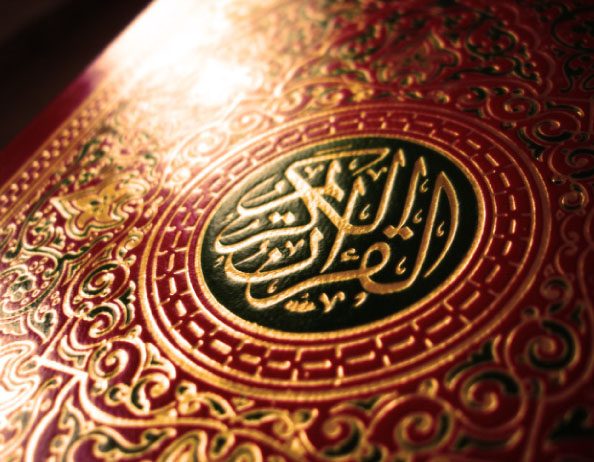
© Shutterstock
In the previous edition, we looked at the link between chapter 113 and other chapters of the Holy Qur’an.
In this edition we explore the reason why the last two chapters begin with the command to ‘seek refuge with God’.
Translated by Murtaza Ahmad
Edited by The Review of Religions Translation Team.
Commentary
Sūrah (Chapter) al-Falaq and Sūrah (Chapter) al-Nās are also referred to as al-Mu‘awwidhatān, i.e. those chapters through reciting which one seeks the protection of Allah the Almighty. This name was designated to these chapters as both begin with the words قُلْ أَعُوذُ [Say, ‘I seek refuge’]. That is, readers are instructed to proclaim that they take refuge with the Lord of the Dawn, the Lord of Mankind, to be safeguarded against all kinds of evil, both on an individual and collective level.
It is noteworthy that Allah Almighty instructs the believer in the Holy Qur’an to seek His protection when beginning to recite the Qur’an, as stated in the following verse فَإِذَا قَرَأْتَ الْقُرْآنَ فَاسْتَعِذْ بِاللَّهِ (: [when thou recitest the Quran, seek refuge with Allah]. Although when starting to recite the Holy Qur’an, one is instructed to recite أَعُوذُ [I seek refuge], the Holy Qur’an’s revelation did not begin with the words أَعُوذُ. Subsequently, the first verse of Sūrah al-Fātiḥah is بِسْمِ اللهِ الرَّحْمنِ الرَّحِيمِ [in the name of Allah, Most gracious, Ever Merciful] and not ِأَعُوْذُ بِاللهِ مِنَ الشَّيْطَانِ الرَّجِيْم [I see refuge with Allah from Satan the accursed]. In short, even though Allah commands us to recite أَعُوذُ,before beginning the recitation of the Holy Qur’an, the word أَعُوذ was not revealed at the start of the Holy Qur’an. Although Allah does not specifically command us to recite أَعُوذ after completing one entire reading of the Qur’an, Allah did, however, reveal the word أَعُوذُ Himself at the end of the Holy Qur’an. This is why Allah Almighty placed two Chapters, that is, Sūrah al-Falaq and Sūrah al-Nās, at the end, which all readers of the Holy Qur’ān are obliged to recite to complete the Quran. And there is profound wisdom in adopting this method:
1) When a person intends to do a virtuous deed, one does not become deserving of God’s absolute grace by mere intention alone; rather, when one desires to do good, God Almighty Himself guides him to the right path and teachings, i.e., his resolve is strengthened by the support of Allah. This is the reason why Allah the Almighty has commanded us to recite أَعُوذُ when beginning the recitation of the Holy Quran. However, He did not reveal the word أَعُوذُ [for when beginning the recitation of the Quran]. Therefore, God Almighty did not put the word أَعُوذُ in the form of Quranic revelation in the beginning. Instead, Allah states that whenever you wish to recite the Holy Qur’ān, recite أَعُوذُ along with it. It is as though God Almighty has taught us the means to strengthen our intention and resolve. But once we have finished reading the Qur’ān and acted upon it, the chapters with أَعُوذُ were placed at the end. Meaning before a person even makes an intention, Allah, through His help, makes him recite أَعُوذُ. We derive from this that when one makes the intention, He is supported by Allah according to their endeavour, and when one acts upon that intention, Allah enables them to fulfil that action.
2) Whenever a Muslim begins to read the Holy Qur’ān, whether it is from the beginning, middle, or end, they will not be aware of the deeper meanings of the Quranic injunctions, as they would not have studied the Holy Qur’an in depth. However, once they have read the Qur’an entirely from beginning to end, they become acquainted with the intricacies and subtleties of faith and the details of the actions one should perform. One begins to understand what deeds they should perform and what actions to abstain from. One also learns about the various kinds of pitfalls and obstacles that can make one stumble and falter. In short, after reading the Holy Qur’an, the mind is broadened, and one begins to understand his responsibilities and becomes worried lest he falls short of fulfilling these duties. Hence, Allah Almighty has taught us [to say] أَعُوذُ in both these cases. Allah commands one to seek His protection before reciting the Holy Qur’ān. The words the Holy Prophet (sa) instructed us to recite [أَعُوذُ] prior to reading the Holy Qur’an are exceptionally brief and are in accord with the psyche of the reader of the Holy Qur’an. But the words أَعُوذُ revealed by Allah the Almighty at the end of the Holy Qur’an encompass incredibly vast and profound meanings, wherein a perfect prayer is taught to safeguard oneself against all harmful things. It is a supplication that corresponds with the state of mind of the person who has finished reading the entire Holy Qur’an, comprehended it, and gained knowledge of everything, including the subtle and finer details as well as major and obvious injunctions, and he comes to understand all matters he must abstain from, and all matters that he should seek out and adopt. Both types of isti‘ādhah [seeking Refuge with Allah] are based upon profound wisdom. The case of one who recites أَعُوذُ at the beginning and the end of the Holy Qur’ān can be likened to one who wishes to build a house and requests a righteous person to lay the foundation stone with their hands and thereafter, upon its completion, requests them to pray once again. The same is the case with good deeds. When one wishes to build a House of Virtue, they must allow the first brick to be laid by the hands of God Almighty. Similarly, it is also essential that when the House of Virtue is completed, the final brick is also laid by the hands of God Almighty. Thus, when we recite أَعُوذُ at the beginning of the Holy Quran, it is as though Allah the Almighty is laying the foundation stone of the House of Virtue for us. And towards the end, when we recite أَعُوذُ, it is as though we are inaugurating this House of Taqwā [righteousness] by the hands of Allah Almighty Himself. Without these two things, the edifice of faith remains incomplete. This is the method revealed to us in the command to recite أَعُوذُ.
3) Further, the command of reciting أَعُوذُ at the beginning of one’s recitation of the Holy Qur’ān and by revealing al-Mu‘awwidhatān at the end indicates that one’s spiritual as well as secular affairs should begin and end by seeking refuge with God Almighty. This is because one cannot dispense with or be independent of God Almighty’s support and protection, no matter how well-versed one might be in matters of religion and irrespective of the level of their divine perception and insight. Not only was the Holy Prophet (sa) the best of all humans, indeed, he was also the chief of all the prophets. Moreover, he was, in fact, the objective of man’s creation. That is to say, God Almighty created man because Prophet Muḥammad (sa) was to appear from among mankind, as indicated by al-Ḥadīth al-Qudsī:
َلَوْلَاَكَ لَمَا خَلَقْتُ الْأَفْلَاك
That is, ‘O Muhammad, [Messenger of Allah!] If it were not for your existence, I would neither have created the heavens and the earth nor any other creation.’
Despite having attained such a high rank, we still find mention in the Ahadith that the Holy Prophet (sa) used to stand before Allah in the Tahajjud [optional prayer in the latter part of the night] prayer for so long that his feet would become swollen. Upon observing his state, one-day Ḥaḍrat ‘Ā’ishah (ra) enquired: “O Messenger of Allah! Allah has forgiven your past and future shortcomings, so why must you stand for so long in the Tahajjud prayer like this?’ He replied: O ‘Ā’ishah! Should I not be a grateful servant of Allah? In other words, he meant that since God Almighty had graced him so immensely, his responsibility had also increased, and it had become imperative for him to worship God Almighty and thank Him more than ever before.
In a similar account, once the Holy Prophet (sa) spoke to Ḥaḍrat ‘Ā’ishah (ra) on the topic of salvation. Ḥaḍrat ‘Ā’ishah (ra) said, ‘O Messenger of Allah! We have to strive and make efforts for our salvation, but since God has decreed salvation for you, why must you perform good deeds?’ The Holy Prophet (sa) said this was not correct, explaining that even his own salvation was dependent upon the grace of God alone. Regardless of how much one progresses in performing virtuous deeds, whatever spiritual status one reaches, they still cannot dispense with the protection of Allah Almighty. Since the Holy Prophet (sa) declared that he, too, would attain salvation through the grace of God Almighty, who, then can claim they have progressed to such a degree as to no longer need Allah’s Mercy and Grace and that they can attain success through their own endeavours alone? Muslims are instructed to constantly bow before the threshold of Allah Almighty in all circumstances and to continue seeking His Help and Support. Yet when one carries out good deeds for just a short period of time, they succumb to arrogance and vanity. If, for a couple of days, one observes prayer, they view it as a favour to God Almighty. If one observes a few fasts, they think they have done a huge favour for God Almighty and that now He is somehow obliged to fulfil their wishes. If they give a small amount in alms, they fall under the illusion that now, somehow, Allah Almighty is indebted to them, and if God does not give them preferential treatment, then, God forbid, God is in the wrong! These are the ways that destroy a person, and when they continue along in this spirit and attitude, no matter how high a status one might have attained, their deeds are wasted away, and they are reduced to the lowest stage. Thus, a person should always continue to seek the protection of Allah Almighty so that they do not become arrogant and thus deprived of Allah’s favours.
Serialisation of Sūrah al-Falaq will continue in the next edition.




Add Comment